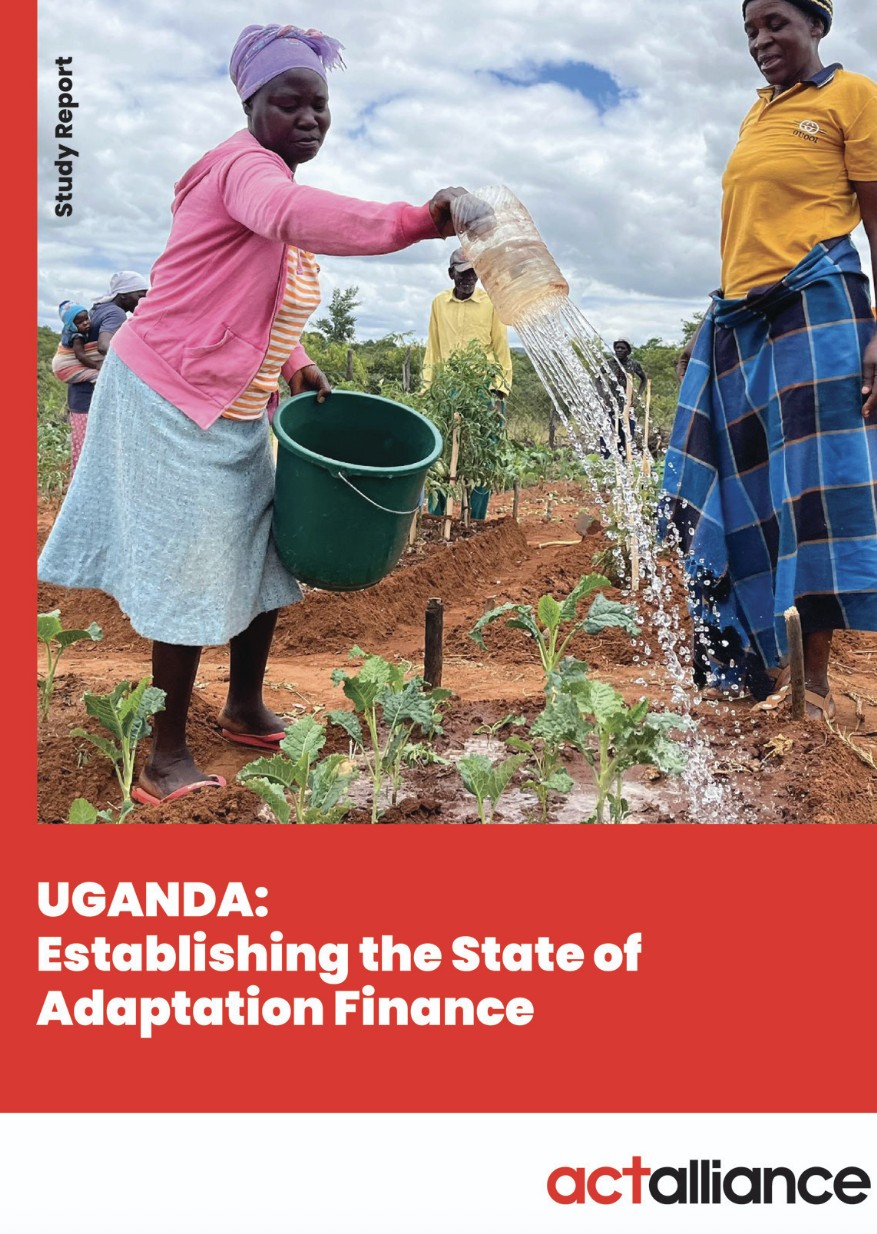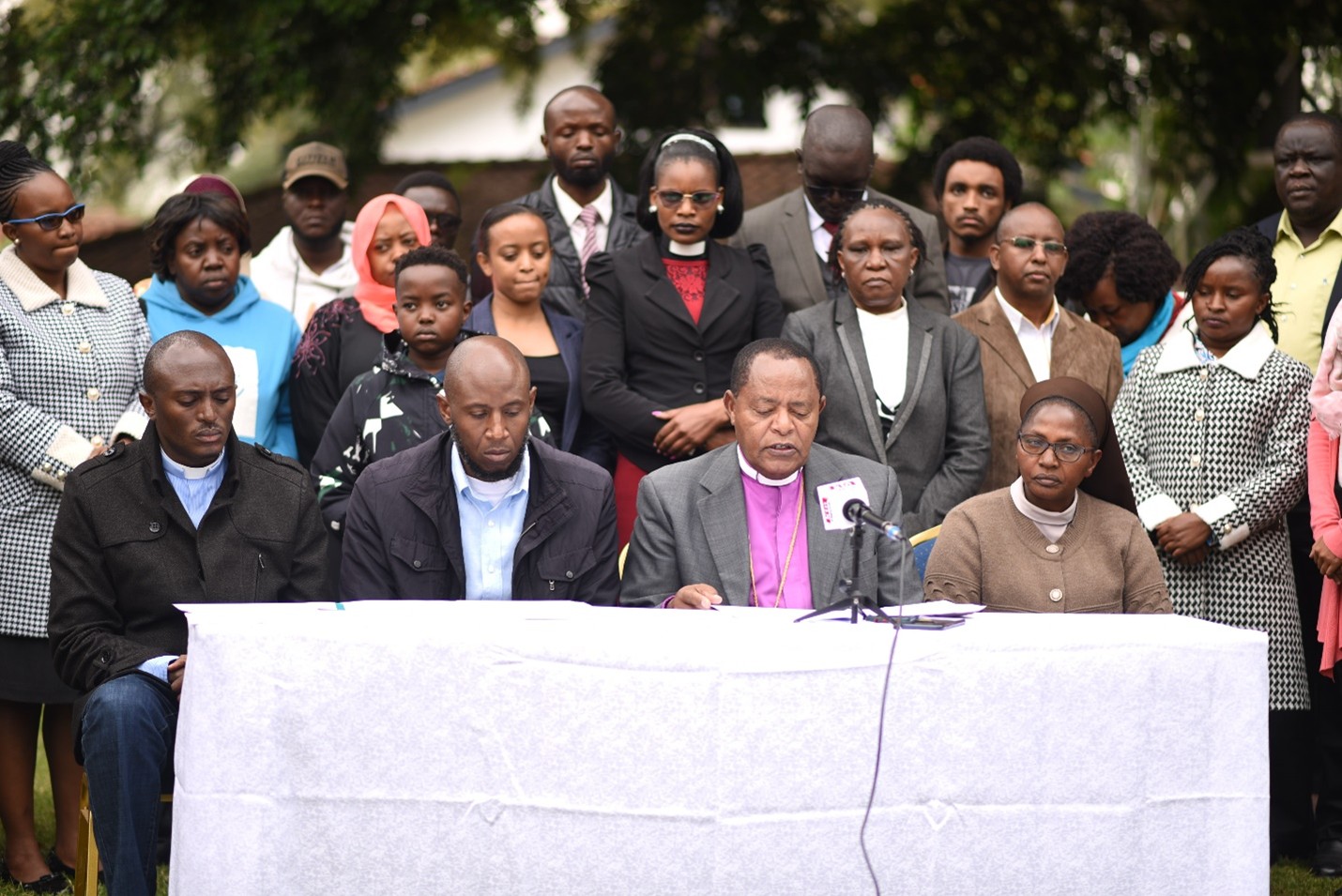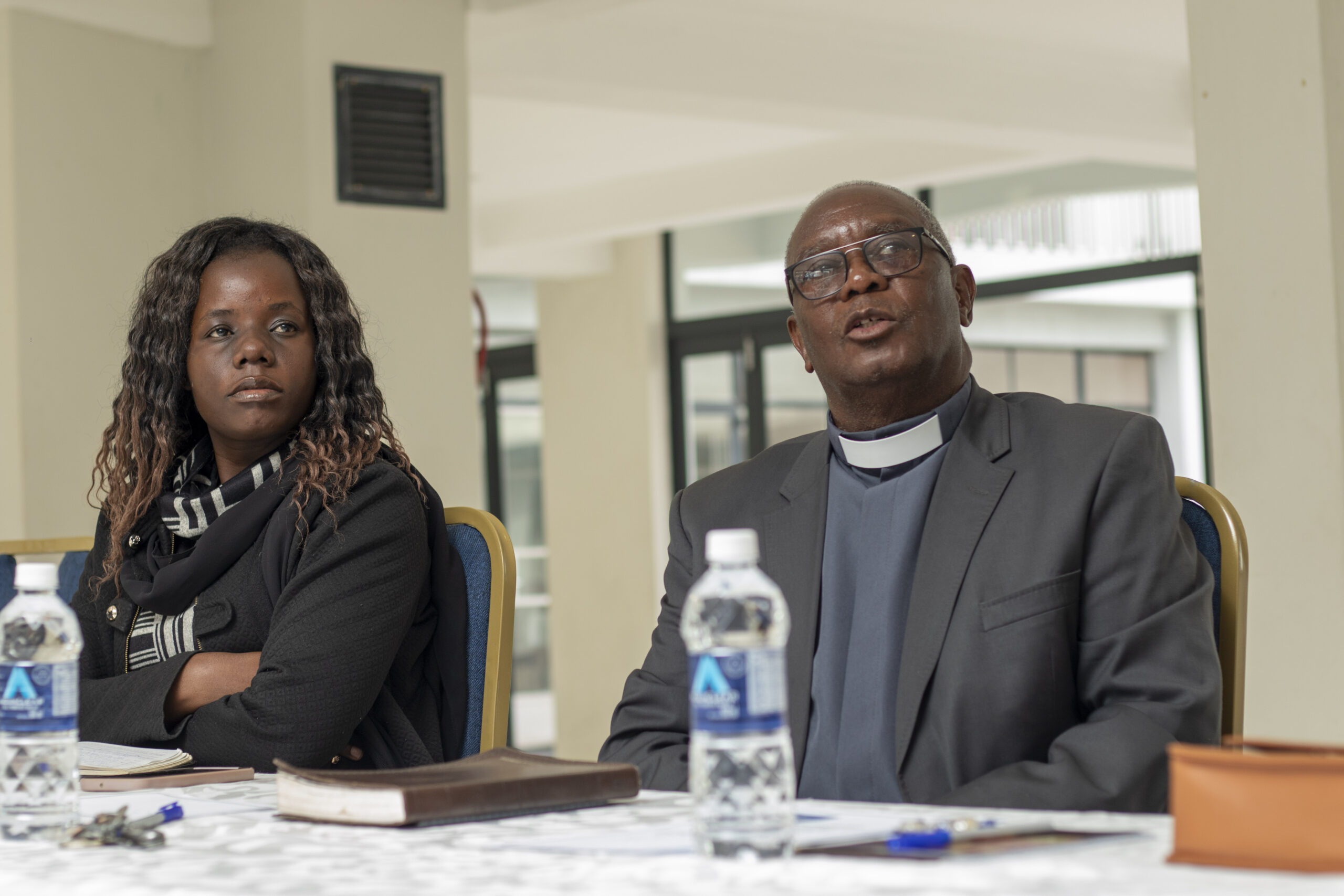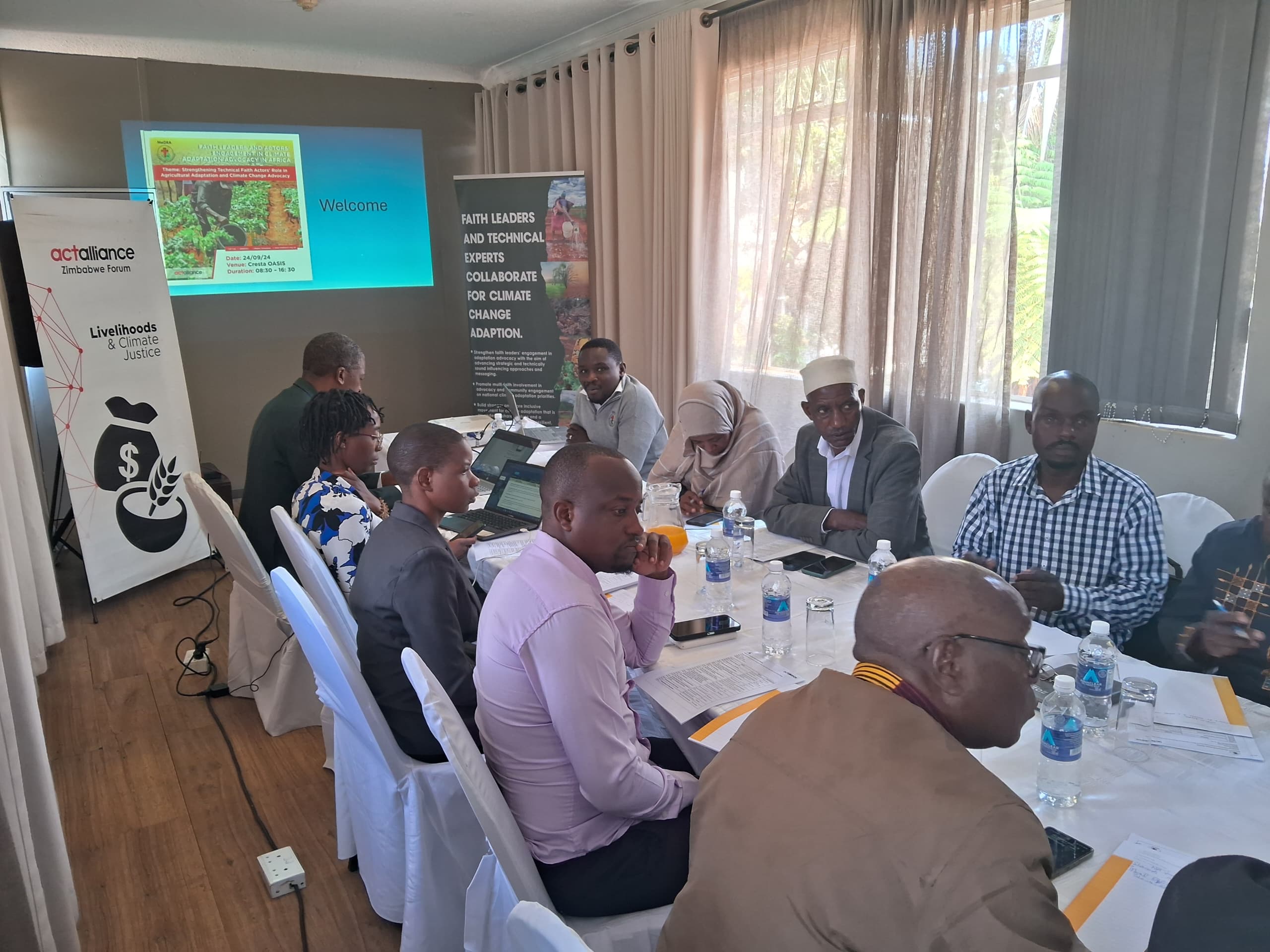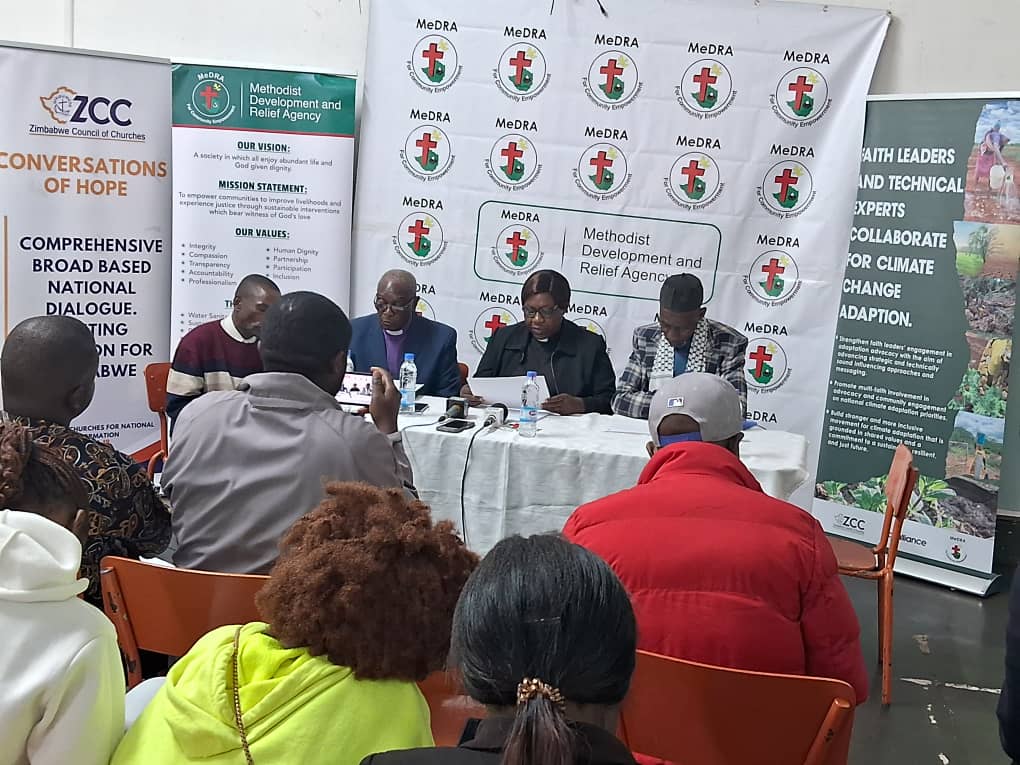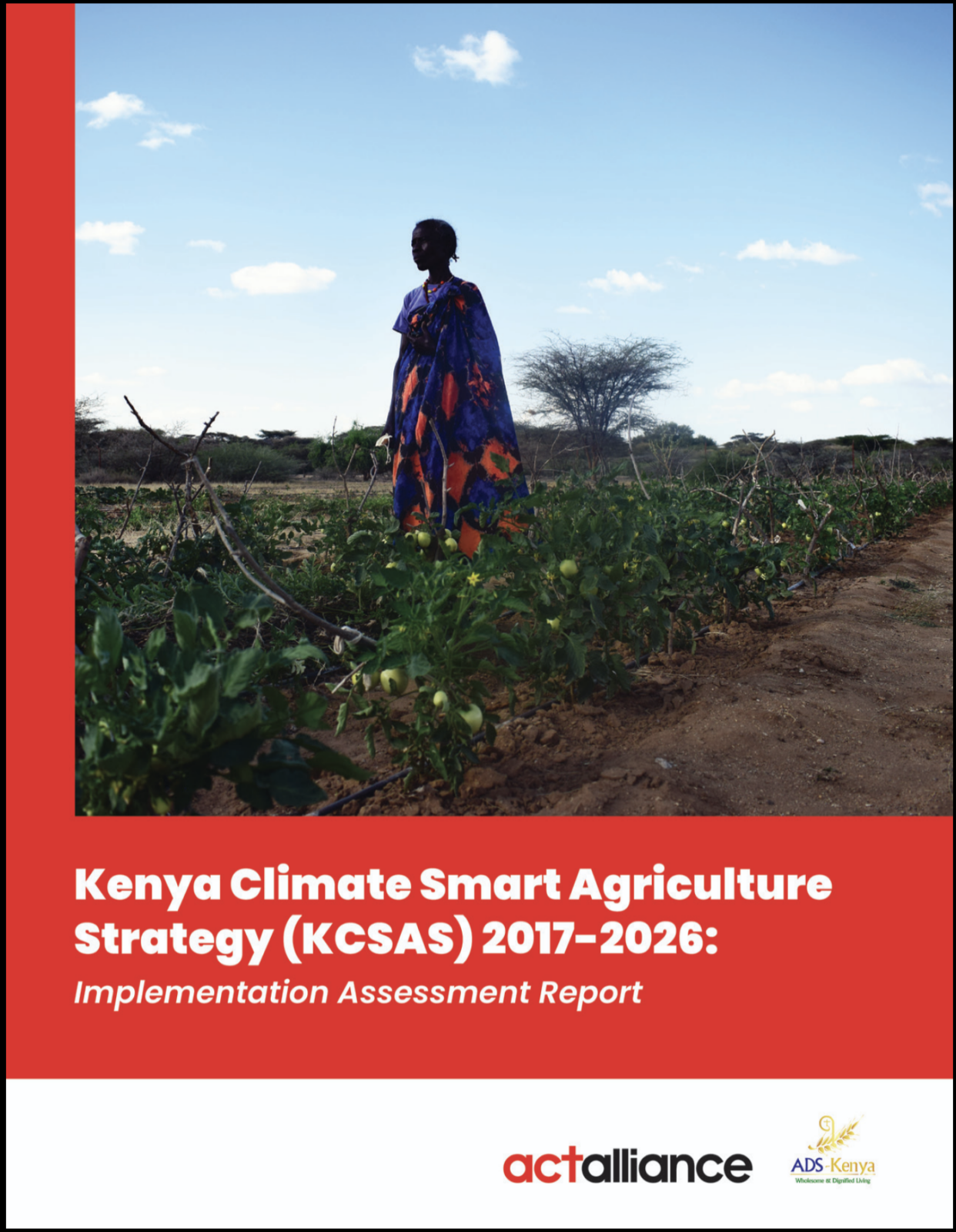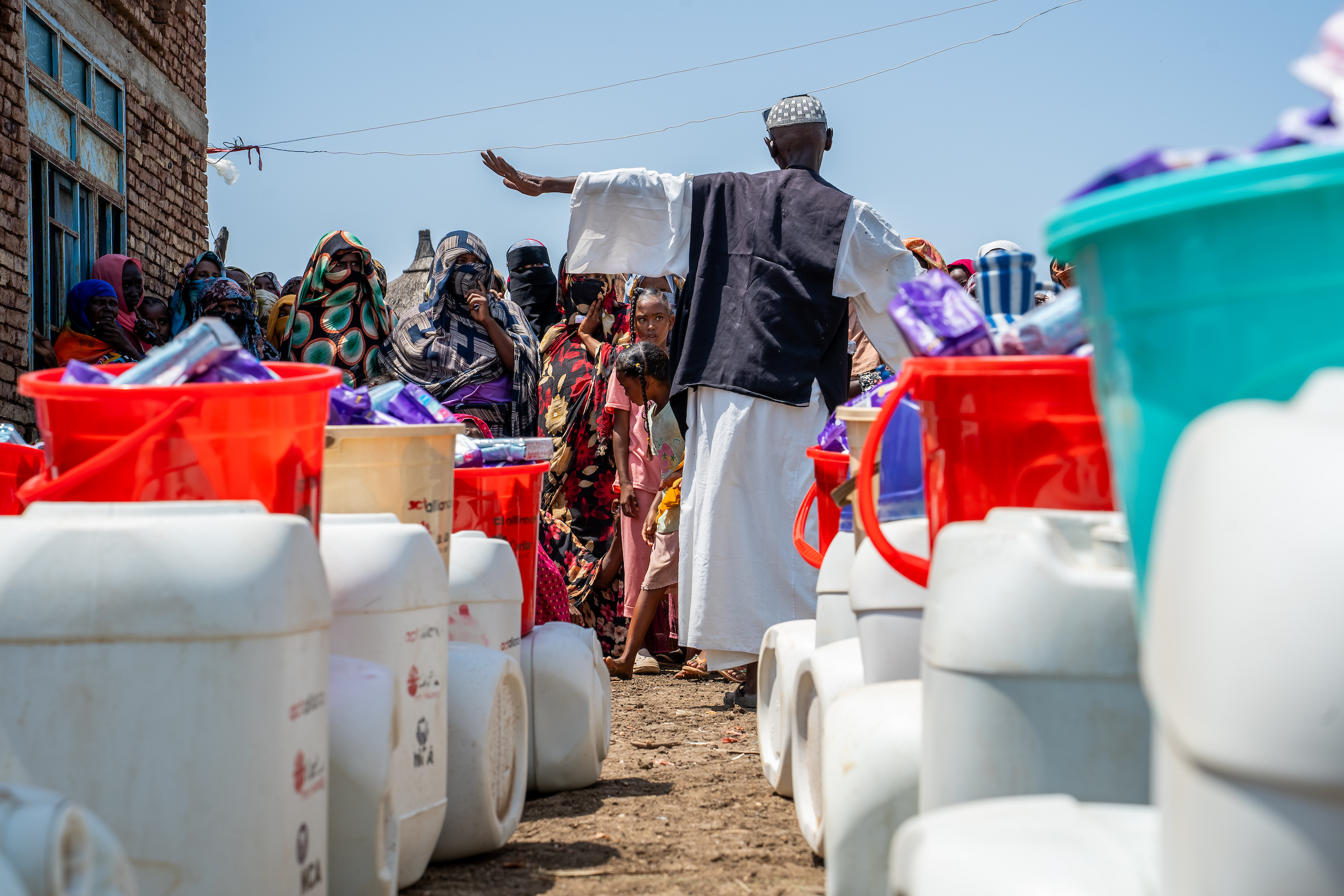A quiet but powerful shift is reshaping climate advocacy across Africa. Faith leaders, long sidelined in environmental and climate policy discourse, are stepping into the spotlight as trusted, credible, and influential voices in shaping national adaptation priorities.
Stepping out beyond their traditional ecumenical or spiritual advocacy, faith leaders are building alliances across denominations, strengthening their technical understanding of climate issues, and becoming active contributors to national climate dialogues, particularly on adaptation, agriculture, and inclusive climate governance.
This transformation is being catalysed by ACT Alliance within the “Needs-Based Advocacy on Adaptation in Africa” project, a three-year consortium initiative led by the Pan African Climate Justice Alliance (PACJA), funded by the Gates Foundation.
ACT Alliance has been implementing this project through its national Forums in six countries – Ethiopia, Kenya, Malawi, Tanzania, Zimbabwe, and Uganda, and placing faith actors at the centre of climate adaptation efforts to drive policy change and climate finance flows that truly serve local communities, especially those on the frontlines of the climate crisis. ACT has further led regional engagement targeting various climate moments that have onboarded national and local level realities and faith perspectives on adaptation.
Through the project, faith leaders are:
- Deepening their understanding of National Adaptation Plans (NAPs) and the national adaptation planning process, to raise national climate ambition and hold governments accountable.
- Building advocacy capacity for faith groups to influence national and regional adaptation strategies and policy processes
- Establishing constructive partnerships with governments to advance people-centred and shared climate goals
By embedding creation care, moral authority, justice, accountability and community trust into policy processes, the project is transforming adaptation from a technocratic exercise into a people-centred movement – rooted in values, justice, faith and responsiveness to climate needs of the most vulnerable.
What follows are some of the compelling outcomes from this unfolding transformation:
1. Multi-Faith Collaboration and Unity
Diverse religious groups are coming together across denominational and faith lines to present a united front on climate issues. In Malawi, leaders from the conference of Catholic Bishops , and Muslim communities collectively developed adaptation messages to feed into the national planning process. In Kenya, faith leaders from Protestant, Catholic, and Muslim communities have spoken about climate adaptation during a press release. This event was documented in print, digital, and broadcast media, including KTN News and Nipashe Business News.
Additionally in Uganda, faith leaders have voiced adaptation messages using the local language to reach more community members.
These faith groups are fostering solidarity, ensuring that religious engagement in climate action is not fragmented or tokenistic but organised and impactful.
2. Faith Leaders – Policy Engagement at the National, Regional and Global Level
Faith actors are now directly influencing national climate policies. In Tanzania, the Vice President’s office formally committed to engaging faith leaders in the review of the National Climate Change Response Strategy. A coordination desk has been established within the Ministry of Environment to ensure structured participation of religious actors.
Similarly, in Uganda, religious institutions contributed to the Climate Change Law and are now shaping National Adaptation Plans (NAP) implementation through their interfaith climate platform which has contributed to the development of Adaptation Plans in four districts: Mbale, Sembabule, Lamwo, and Kasese. Additionally, faith leaders have called for local governments to allocate resources to climate change adaptation. With their influence, there has been a budget allocation for environment restoration activities like tree planting, investing in desilting valley dams, and strengthening community-based early warning systems. In Ethiopia, faith actors helped frame the NAP through joint technical briefs and theological reflections, grounded in scriptural justification for adaptation.
The ACT Kenya Forum, through its member Anglican Development Services, contributed to the government’s Nationally Determined Contributions (NDC) report where they were invited to provide recommendations on prioritising agricultural sector actions for the 2024 – 2035 NDC.
The project successfully established a faith network that promotes cooperation on climate adaptation actors. Within this network, the Global Goal on Adaptation (GGA) framework has been discussed including its interlinkages with climate finance, emphasizing the vital role of faith leaders in prioritizing adaptation efforts in Africa. Joint key adaptation messages were developed by faith leaders ahead of COP 29, which served as important advocacy lobby points.
ACT has been on the forefront of championing a joint ecumenical and interfaith cooperation in pursing policy gains during global and regional meetings. These include UNFCCC COPs, AMCEN, CCDA, Annual African Union General Meetings, Africa Climate Summit, African Regional Dialogue on Loss and Damage meeting, and Community-Based Adaptation Conference.
Similar to national exchanges, ACT unpacked global concepts and issues, in particular the Global Goal on Adaptation and the New Collective Quantified Goal and curated participatory dialogues at regional and global levels that allowed faith actors and leaders to meaningfully offer their input and deliver their asks on what both agendas must address.
These engagements reflect a profound shift: religious leaders are now viewed as stakeholders in climate governance not just community mobilisers.
3. Moral and Cultural Legitimacy in Climate Discourse – Creation Care
Faith actors bring an unequivocal contribution that complements the broader civil society contribution: moral authority, justice and accountability for creation care. By framing environmental and climate stewardship as a spiritual duty, faith leaders help local communities understand that adaptation is not only necessary but also righteous. They invoke a sense of duty, justice and accountability in multilateral cooperation as well.
In Zimbabwe, congregants were encouraged to view climate action as part of their religious identity, through sermons and interfaith dialogues. Kenya’s platforms engaged with the NAP through both scientific and moral framing, translating complex policies into ethical imperatives that communities can understand and embrace.
4. Capacity Building and Institutional Strengthening
A foundational aspect of this transformation is the capacity strengthening of religious leaders to understand, articulate, and influence climate policy.
In Malawi, faith leaders received training that enabled them to advocate for the translation of adaptation policies into local languages, highlighting the critical role of accessibility of climate information. In Uganda, workshops and strategic guidance have helped faith actors speak confidently in technical policy spaces.
The project has ensured that faith actors are not just vocal, but informed and effective. Their engagement has been strengthened by the creation of technical working groups and communities of practice for faith actors in these countries. These platforms have been a game changer offering technical support to faith leaders’ efforts in adaptation advocacy.
5. Grassroots Mobilisation through Trusted Institutions
Religious institutions have a deep reach into communities, far beyond what most NGOs or government programmes can achieve. Leveraging this trust, faith actors are promoting community-level adaptation efforts. From large-scale tree planting campaigns in Uganda, to sacred forest protection initiatives in Ethiopia, and policy literacy efforts in Malawi, faith leaders are connecting national priorities with local realities. These community-driven actions, often highlighted through coordinated media and advocacy efforts, ensure adaptation is not only top-down but also community-owned and locally driven, with measurable participation, such as the engagement of thousands of congregants and dozens of faith networks, demonstrating the scale of mobilisation.
6. Creation of Advocacy Tools and Policy Materials
ACT Alliance, through the project, funded the Kenya, Malawi, and Uganda Forums to conduct climate research tailored to their respective countries’ contexts. This resulted in the publication of three study papers, which will inform upcoming government consultations on climate policies related to adaptation financing, climate-smart agriculture, and loss and damage. The papers include:
- Uganda: Establishing the State of Adaptation Finance
- Malawi: Research on Loss and Damage with a Focus on Programming and Policies
- Kenya: Assessment of the Kenya Climate Smart Agriculture Strategy (2017 – 2026)
Across all six countries, faith actors are producing technical and advocacy content that feeds into national dialogues. From policy briefs in Tanzania, opinion pieces in Zimbabwe, to technical briefs and climate sermons in Kenya, and NAP-aligned theological reflections in Ethiopia, this new body of work amplifies the voices of religious leaders in national and regional climate spaces. In Kenya, an opinion piece on climate adaptation in agriculture with a gender perspective was also published.
These materials are supported by media campaigns and social media outreach, ensuring broad dissemination and influence. These resources are not merely symbolic; they are actively used to influence decision-makers, shape concrete policy actions, and guide community-level interventions, reflecting an integrated approach to faith-based climate advocacy.
The “Needs-Based Advocacy on Adaptation in Africa” project, has been instrumental in positioning faith actors as key players in national climate adaptation and important voices at regional level. By strengthening their advocacy engagement, fostering multi-faith unity, and building strategic government partnerships, the project has transformed faith leaders from community voices into influential policy advocates at national and regional levels.
ACT Alliance’s national forums across the six countries have ensured that adaptation policies are grounded in local realities, moral authority, accountability, and community trust, making climate action both effective and just. Their involvement in the regional faith network ascertained that issues of national importance are part of the regional calls for enhanced adaptation action and financing.
The extensive reach of faith actors and leaders, combined with their strategic engagement across climate structures and governance processes at all levels, demonstrates their critical role as allies in advancing climate adaptation and resilience efforts that truly serve Africa’s most vulnerable. Harnessing their influence presents a powerful opportunity to mobilise public support, engage communities, and shape responsive climate policies that enable impactful on-the-ground adaptation and unlock essential financing. Engaging this vital constituency is not only strategic, it is essential.
Establishing the State of Adaptation Finance
Please, download the report below.
